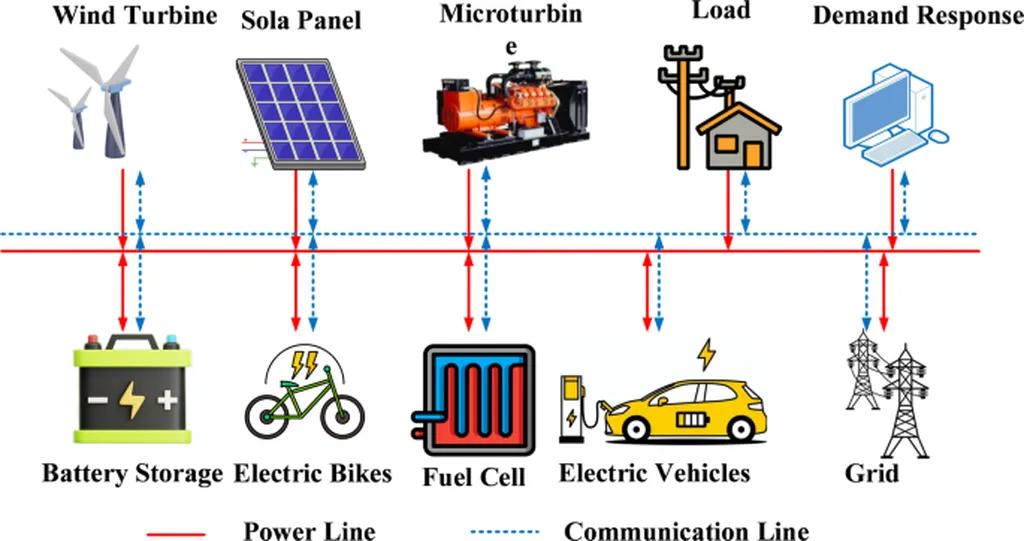In the quest for a greener future, the energy sector is under increasing pressure to decarbonize power systems. However, balancing economic efficiency and carbon reduction presents significant challenges. A recent study published in the *International Journal of Electrical Power & Energy Systems*, titled “Scenario-based sensitivity-driven energy storage optimization for economic and carbon efficiency in multi-vector energy communities,” offers a promising approach to tackle this issue. Led by Abdollah Younesi from the Energy Management Research Center at the University of Mohaghegh Ardabili in Iran, the research proposes a novel method to optimize energy storage systems in integrated heat and power networks, potentially revolutionizing how we manage energy in local smart communities.
The study introduces a bi-objective mixed-integer linear programming approach that minimizes both carbon production and costs, aiming to bridge the gap between heat and power dispatch in local integrated smart energy communities (LISEC). “Our approach considers the dual objectives of economic efficiency and carbon reduction, which is crucial for the sustainable operation of integrated heat and power systems,” Younesi explains. The research highlights the importance of energy storage systems in enhancing grid performance, particularly under extreme weather conditions.
The proposed method was validated on a LISEC system comprising a 33-bus distribution network and a 58-node heating network with 26 heating demands. The system includes various components such as wind turbines, battery energy storage, combined heat and power (CHP) units, heat pumps, a gas boiler, and thermal storage tanks. The scenario-based sensitivity evaluation assessed the stability of optimization outcomes, key factors determining economic feasibility and carbon output, and the impact of changes in energy storage capability and demand variability.
One of the key findings of the study is the critical role of energy storage systems in strengthening grid adequacy and performance. “Energy storage systems have proven to be a key component in ensuring the reliability and efficiency of the electricity grid, especially during extreme weather conditions,” Younesi notes. This insight could have significant implications for the energy sector, as it underscores the need for robust energy storage solutions to support the transition to zero-carbon power systems.
The research also sheds light on the economic and environmental benefits of integrating heat pumps and electric-thermal storage devices into energy management strategies. By optimizing the dispatch of these components, the study demonstrates the potential for reducing carbon emissions and improving economic efficiency in the heat generation sector.
As the energy sector continues to evolve, the findings of this study could shape future developments in energy storage optimization and multi-vector energy systems. The proposed method offers a comprehensive framework for balancing economic and environmental objectives, paving the way for more sustainable and resilient energy communities. With the increasing demand for decarbonization, the insights gained from this research could prove invaluable in guiding policy decisions and technological advancements in the energy sector.
In summary, the study by Younesi and his team represents a significant step forward in the quest for sustainable energy management. By addressing the challenges of economic analysis in zero-carbon power systems, the research provides a valuable contribution to the ongoing efforts to decarbonize the energy sector. As the world moves towards a greener future, the insights from this study will be crucial in shaping the energy landscape of tomorrow.

